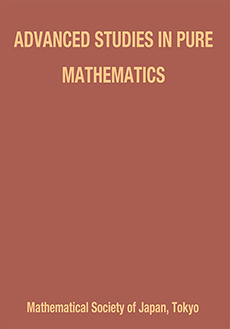Abstract
This is a survey on a universal bivariant theory $\mathbb{M}_{\mathcal{S}}^{\mathcal{C}} (X \to Y)$, which is a prototype of a bivariant analogue of Levine–Morel's algebraic cobordism, and its application to constructing a bivariant theory $F\Omega (X \to Y)$ of cobordism groups. Before giving such a survey, we recall the genus such as signature, which is the main important invariant defined on the cobordism group, i.e, a ring homomorphism from the cobordism group to a commutative ring with a unit. We capture the Euler–Poincaré characteristic and genera as a drastic generalization of the very natural counting of finite sets.
Information
Digital Object Identifier: 10.2969/aspm/05610363


